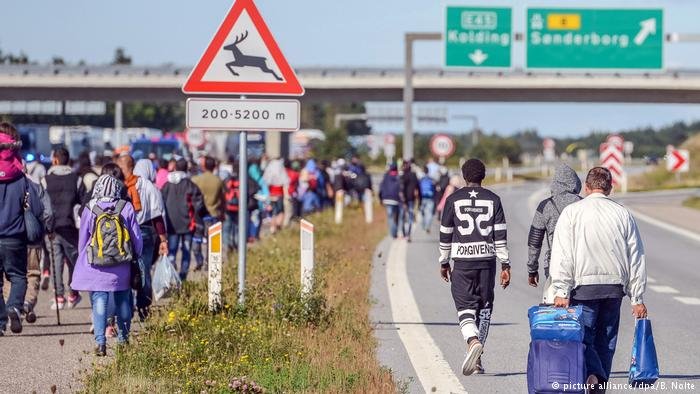
Earlier this week Denmark passed a law enabling it to process asylum seekers outside Europe. The legislation was passed on June 3 where 70 lawmakers voted in favor of the law. The new law now establishes a system where an asylum-seeker will need to apply in person at the Danish border and then be flown outside Europe to be hosted in a third country. If their application is successful, they would be granted refugee status and be allowed to live in the host country, but not in Denmark. Knowing that one will be sent back, “we hope that people will stop seeking asylum in Denmark,” said Rasmus Stoklund, the Social Democrat government party’s immigration speaker to broadcaster DR.
On 5 June, a similar measure was adopted by Greece where it used high-tech “sound cannons” to stop crossovers from Turkey.
Denmark’s new law aims at conceptualizing aid and welfare schemes to contain the refugee influx within the borders of the African countries. The vision to externalize the burden of hosting refugees to another host country started with a report in 2002 by the Danish Centre for Human Rights and the European Commission. It became functional when Denmark’s immigration minister, Mattias Tesfaye, whose father was an Ethiopian immigrant, visited Rwanda in April to sign agreements on asylum matters. Denmark, along with Austria, has pledged support for an UN-operated refugee camp in Rwanda, set up to receive refugees stuck in Libya. The Danish media has reported the government negotiating with Tunisia, Ethiopia, Egypt and Eritrea to set up refugee centres on Denmark’s behalf.
Effects of the new Law
Denmark receives the lowest number of refugees in Europe yet it has chosen to externalize the burden of hosting refugees. Denmark’s law seeks to solve the problem of internal integration by looking outside. The new law will likely deepen the boundaries favouring segregation and apathy towards non-West multiculturalism.
As a region, the EU could rethink its integration policies beyond housing and as identity challenges that will now be further complicated with issuing of multiple identity cards for a single refugee.
Denmark law incompatible with EU!
Both the legislation by Denmark and the measures by Greece have been criticized by the European Commission wherein the commission spokesperson said: “external processing of asylum claims raises fundamental questions about both access to asylum procedures” and equal protection.
The European Union is facing growing political reluctance, social paranoia and fractures within towards migrants. The new Danish law is incompatible with the EU international law that stresses individualism and universal human rights and further complicates its efforts to have a uniform regulation for refugees. Along with raising the bar for asylum seekers, the EU has remained divided when different countries use different policy instruments to deal with the same crisis.
In 2020, the UK considered building asylum processing centres on Ascension Island, a remote territory in the Atlantic Ocean. Merkel’s Germany has famously “managed this” crisis through its nationwide housing policy and at the same time became the first EU country to lift its ban on deportation to Syria. France, Spain and Italy have exhibited strong anti-immigrant sentiments as they continue to receive most refugees. The result has been to think of a deal with Turkey which would again externalize the refugee burden. The host countries battle upholding their liberal ethos with hardening internal anti-migration and anti-refugee attitudes causing social exclusion, documentation hurdles, subsidiary protection and restrictive free travel within the EU.
Refugee Problem in the EU
Since the 2015 refugee crisis, Denmark, Spain and Italy have adopted restrictive policies with an ethnonational approach in dealing with immigration. With welfare dualism such as reducing social benefits for new residents, Denmark revoked the residence permits for 94 Syrian refugees on the ground that the security situation around Damascus has improved for them to return. While the eastern European countries like Hungary, Poland and the Czech Republic had hardened their border police to stop the influx, the West European countries have attempted to integrate the refugees through housing settlements.
However, across Europe, the inflow of refugees and along with it a scope for multiculturalism has stymied as political leaders exhibit anti-immigration attitudes. Complete sealing off the borders to “irregular” migrants or sending troops to push back refugees are compounded by equal public suspicion towards anyone “non-Western.”
